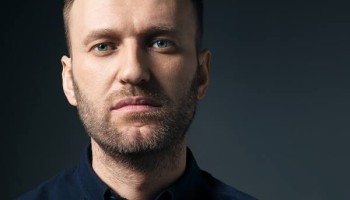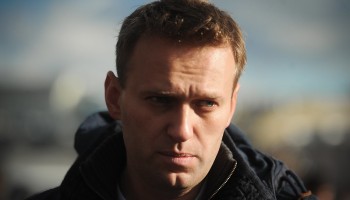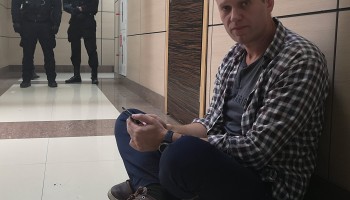Founded by Russian activist Alexei Navalny, FBK is a non-profit organization that investigates acts of corruption by high-ranking Russian government officials.
Leonid Volkov, FBK’s Chief of Staff, posted on Twitter that the publication unmasks “The ones who started the war. Those who helped Putin usurp power. Those who financed the war. The ones who stole,” and “those who repressed the dissenters” against the Kremlin.
Over the past two months, the West has responded to Russia’s illegal war with a plethora of sanctions against its economy; financial institutions; currency; and oligarchs, who have lost billions of dollars in assets for their backing of the authoritarian ruler.
Those named as Putin’s accomplices are neatly categorized by their area of expertise. Hundreds are listed under each section as warmongers, propagandists, corrupt officials, and organizers of political repression, to name a few.
The list’s purpose “is to make Putin toxic,” Volkov said. It is FBK’s goal to leave the Russian president “abandoned” and “isolated in a scorched field” so that he will find himself without any support and with no one left to turn to for help.
The announcement comes a month after Navalny’s prison sentence was extended to nine years following his attempted assassination at the hands of the Kremlin and its Federal Security Service (FSB).
Before boarding a plane from Tomsk to Moscow, FSB agents broke into the activist’s hotel room and laced his underwear with the deadly Novichok nerve agent. He fell ill mid-flight and the plane had to make an emergency landing near Omsk where he was hospitalized before being moved to another hospital in Berlin.
Though Russian prosecutors refused to conduct an investigation into the assassination attempt, FBK later elicited a full confession out of FSB agent Konstantin Borisovich, who was part of task force assembled to ensure Navalny’s death.
When Navalny returned to Russia, he was re-arrested for violating his parole by leaving the country for medical treatment in Berlin that most likely saved his life. He was eventually given a nine-year prison sentence in a trial that was widely seen as a farce.
German Chancellor Olaf Scholz remarked that the events which led to the conviction were “incompatible with the principles of the rule of law.” Meanwhile, FBK published a statement against the injustices that took place during the trial, in which the press was given limited access and Navalny’s legal team was denied their electronic equipment during the proceedings.
More to the point, Navalny’s conviction was seen as a retaliation by the Kremlin for being a thorn in Putin’s side.
Recognizing that solely focusing on the wealthiest oligarchs is not enough to dismantle the endemic corruption that has come to define Putin’s years in office, Volkov explained that “it is important that we also list many middle-ranking criminals, those who are proud of their ability to operate below the radar.”
“They thought their role in turning Putinism into a fascist dictatorship would go unnoticed,” he said. “Well, they were wrong.”
But many of the 6,000 named still have a chance, Volkov noted, to do the right thing and renounce their support of the Russian president. “Those whose hands are not covered in blood still have a month or two to get off.”
As for Navalny, the inhumane treatment that he has suffered at the hands of his government does not appear to have broken his spirits.
“My space flight is taking a bit longer than expected,” the Russian activist said on his extended incarceration. “The ship is caught in a time loop.”
More importantly, his resolve to dismantle Putin’s endemic corruption remains strong, in spite of the authoritarian ruler’s best efforts.
“Putin is afraid of the truth,” Navalny points out, “I have always said that. Fighting against censorship and bringing the truth to the people of Russia has remained our priority. The Kremlin smashes the media, and in response we create new ones.”






